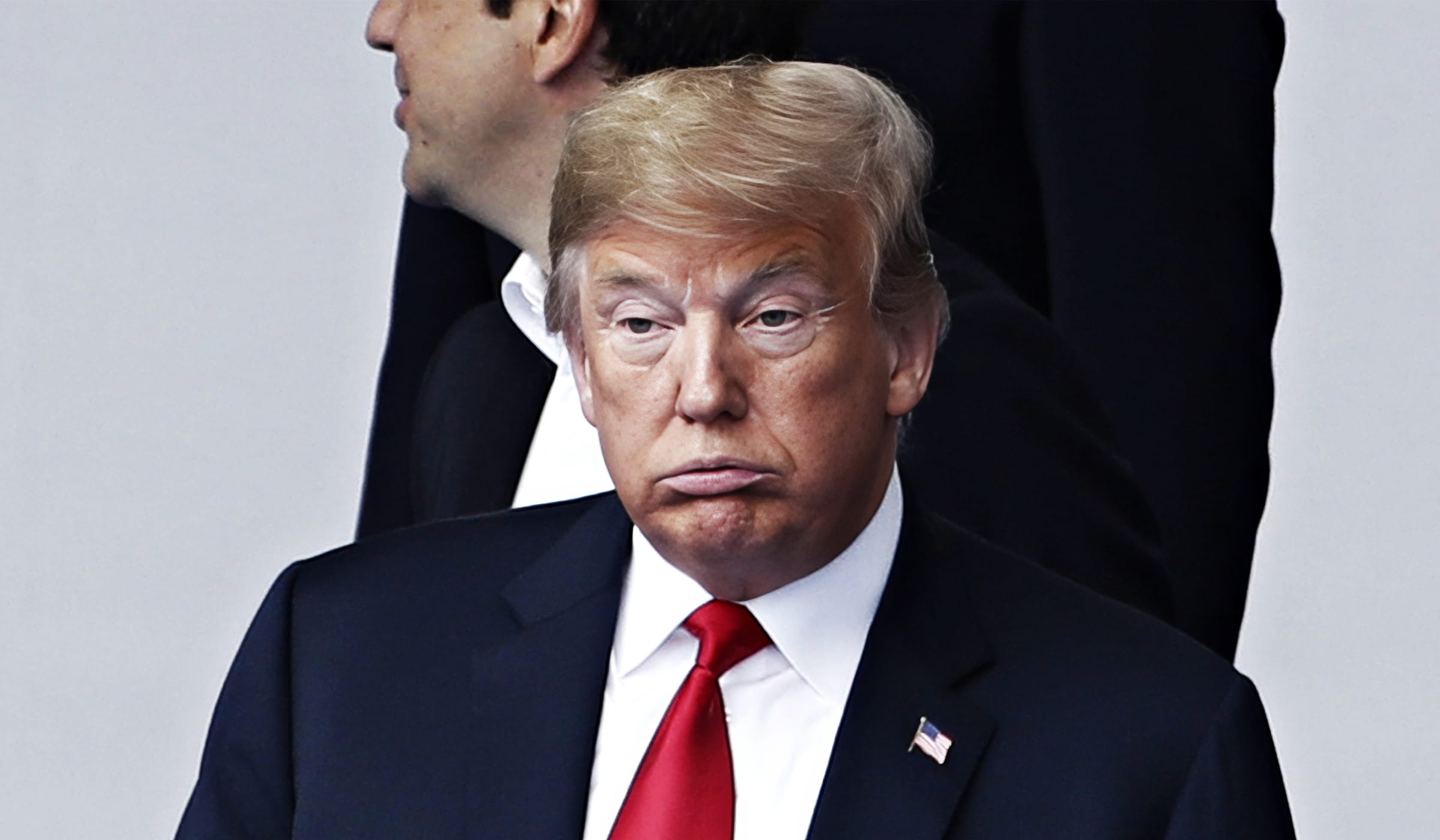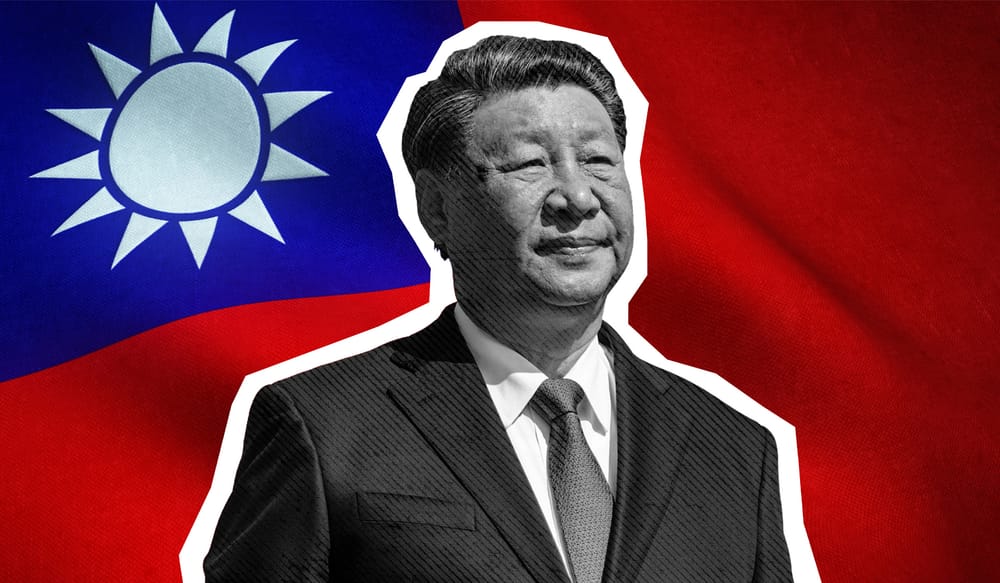Just like Trump I'm no stranger to controversy and I am about to risk my follower numbers with what I'm about to say, but humour me a minute here and allow me to explain why pretty much everything you've read about Trump's tariffs is either outright false or grossly misrepresented.
In fact, it seems to be the first case of a story involving Trump and one of his policies that absolutely everybody gets wrong.
Given the fact that the new tariffs target the entire world, there is no incentive by any political leader – nor the media of any nation – to provide an excuse for Trump's decision.
What's more he was never a well-liked figure to begin with and rarely got any positive coverage from the global media, so it's hard to expect any of the outlets to even try to explain what this economic war is about, when it provides a brilliant opportunity to unite the entire planet in bashing the bad Orange Man.
To make things even more confusing, not even the American right feels comfortable with his protectionism, as the Republican party has always been the one to defend free markets and encourage free trade.
At most, then, the right-affiliated outlets either take a cautious stance or, on the fringes of the spectrum, unquestioningly accept anything that Trump says or does, proclaiming America is coming back, which isn't accurate either.
Simply put – nobody has any interest in reporting the nuanced explanation of what's going on and why (gasp!) American complaints about the world taking advantage of their country may not be so baseless.
Or new – here's Trump voicing his criticism of US trade policy in 1988, saying basically the same things he's saying today.
Why are Americans so angry?
Contrary to what media reports would have you believe, the trade war started by Trump is about a lot more than just getting back at those who benefited from American openness to importation of goods from all over the world.
Say what you want about him but his administration took on a Herculean task of solving four enormous problems:
- Persistent trade deficits.
- Job losses caused by relocation of manufacturing abroad.
- Federal budget deficits and massive national debt.
- Reshoring strategically important manufacturing capabilities.
If your country faced these would you blame your government for taking drastic actions early into its term?
1. Why are trade deficits bad?
Somehow I'm yet to come across a single media outlet which would honestly explain why enduring trade deficits are bad for any country.
Yesterday JD Vance callously, but not inaccurately, commented that: “To make it a little more crystal clear, we borrow money from Chinese peasants to buy the things those Chinese peasants manufacture.”
You see, what USA records as a deficit other countries – like China – record as a surplus.
This means they end up with billions of US dollars that they need to spend somehow. Since they didn't buy any goods or services from America, they take the money and purchase something a lot more valuable – American assets.
This includes American bonds, financing deficit spending of the US, yielding interest payments to the holders (i.e. Americans borrow back the money they spent). But it also covers real estate, land or stocks.
The surplus from buying cheap rubbish from Shein or Temu is used by China (and, similarly, other nations) to buy up American assets which have no expiry date and appreciate over time or pay interest.
That Barbie doll is going to fall apart but foreign shareholding of American business is not.

Over the past 30 years, since the creation of NAFTA, barely restricted trade has contributed to a cumulative deficit of $16 trillion. It is also the price of American assets foreigners subsequently obtained in the US, which have since multiplied in value.
In other words, since 1994 Americans have bought $16 trillion more in goods and services than they sold, but in that same time foreign holdings of American assets went up from $3.3 trillion to over $62 trillion.
And Americans are asking themselves now – was it worth it?
2. Isn't unemployment really low in the USA?
At 4.2% the unemployment in the States isn't at its lowest but it's pretty low. However, unemployment rate is a poor metric that measures only the share of people in the labour force who are actually looking for a job – it does not include those who are disillusioned and quit.
Labour force participation rate as reported by OECD for people aged between 15 and 64 is 75% for the US, compared to 80% for Germany, Canada or Australia, 82% for Japan or 85% for the Netherlands.
So, there is room for improvement, for between 10 to 20 million people.
There is also the problem of quality of those jobs, how well they pay relative to people's needs and regional and sectoral unemployment problems which have turned many smaller American towns into ghost villages.

Last year those people, many inhabiting the crucial swing states, have again elected someone who promised to address their plight.
And he's making good on that promise right now, whether the world likes it or not.
3. Tariffs as a source of revenue
While everybody is busy talking about the inevitable decline in trade and a rise in prices (of some goods, at least), few seem to be mentioning how much money those tariffs may raise for the budget.
As I explained here they really aren't anything special – they're just a tax.
Instead of a broad sales tax or VAT, widely employed around the world, Trump has decided to place a relatively higher rate but only on goods shipped from abroad.
How is it that Europeans can charge 20 or 25% in VAT but Americans can't tax only the products they select on the basis of their origin, given their vast trade deficits? All taxes reduce consumption and, thus, trade.
USA is currently running budget deficits of over 6% – far beyond the reasonable levels of 2 to 3%, which would permit the debt to decline in proportion to GDP over the long term.
Trump's goal is to cut them by over 60% and he needs to find the money – almost a trillion dollars.
He opted not to tax the income of American taxpayers or American companies, but imported goods instead, shielding those which are made in America.
Think about it – if the president or prime minister in your country came out and said: instead of taxing all of you directly, we're going to only tax the products somebody else makes – would that not be preferable?
Whether it works in the end remains to be seen, but that's the goal – place the burden as far away from Americans as possible, even though they are going to have to accept higher prices of some items.
4. Manufacturing matters
Finally, the least attention seems to be given to the reshoring of manufacturing back to the US.
Trump is being ridiculed for trying to bring back factories making plastic dolls, but in reality it's about the heavy industries that a superpower needs to have, regardless of the cost.

Like food supply, the ability to make your own steel, mine and refine your own rare resources, produce your own vehicles – along with all critical components – or semiconductors, is not only a question of jobs for Americans but national security.
War in Ukraine has shown that the ability to quickly ramp up industrial production to send more ammunition and weapons to the frontlines may determine the outcome.
And given that America's preeminent rival in the 21st century, China, is a global manufacturing powerhouse, the US can no longer accept being left so far behind, even if it comes at a price.
There’s a method to the madness
Once again seemingly intelligent people around the world are quick to dismiss the US president on the basis of his reputation and behaviour, ignoring the underlying motivations for his actions.
And they are doing it at their own peril, since international trade as a share of GDP is just 25% for the US compared to 37% for China and 45% for the EU. In other words, in an equal exchange of tariff blows Americans stand to lose less.
Finally, in the ongoing frenzy, with media commentators dissecting and criticising the methods behind Trump's tariff rates, their sense is lost on them.
They are a start not the end.
Trump has signalled willingness to talk with countries in a bilateral manner. About 70 have already reached out with counterproposals and yes, White House is now going to try and squeeze the most out of them in exchange for some tariff relief.
The spectacle has only just started. We don't know yet how it's going to end, but dismissing it as unhinged or completely baseless is a show of ignorance far greater than Trump is accused of.
Featured image: Ale_Mi / depositphotos









